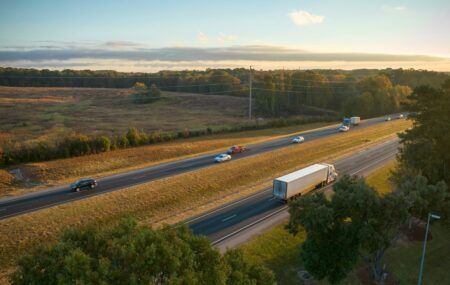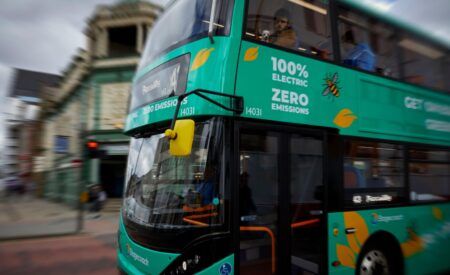The UK government is hailing the success of the world’s first Zero Emission Vehicle (ZEV) Summit that it hosted last week (September 11-12), bringing together global representatives to support and collaborate on a zero-emission future for transport around the world.
Ministers, officials and business leaders from over 40 countries descended on Birmingham and Bedford for the two-day event, which sought to accelerate investment in both zero-emission technology and infrastructure.
UK Prime Minister Theresa May told delegates at day one of the conference in Birmingham that she wants to see Britain, “leading from the front and working with industries and countries around the world to spearhead change”. To help support that aim, the UK government has pledged £106m (US$139m) for research and development in ZEVs, new batteries and low carbon technology. This will be bolstered by more than £500m (US$656.8m) worth of investment, creating over 1,000 jobs across the country.
A total of 55 people spoke at the summit, including keynotes from companies such as Nissan, who emphasized the need to focus not only on the car, but on the energy network too.
Commitments made as part of the landmark summit include:
• Signatories from 13 governments committing to a zero-emission future for transport, through action including consumer incentives, international collaboration, integration of zero emission infrastructure into town planning and support for research and development;
• The first meeting of the Electric Vehicle Energy Taskforce, a group convening government with the energy and automotive industries, to plan for future electric vehicle uptake and ensure the energy system can meet future demand in an efficient and sustainable way;
• A Clean Van Commitment from 16 of the UK’s largest van fleet operators to have nearly 2,400 ZEV vans by 2020, and go completely zero emission in cities by 2028;
• A new £1m (US$1.3m) fund from summit sponsors Lex Autolease, to provide £1,000 (US$1,300) off the first 1,000 pure electric vehicle orders from January 2019;
• Trials of new LEVC vans with London Fire Brigade and the Met police;
• Plans for a new Degree Apprenticeship Center at the University of Warwick that will focus on the high value manufacturing sector, backed by £10m (US$13m) of government funding and with space for 1,000 students.
“No one nation can tackle the effects of climate change alone. But as a community of nations, taking global action, we can not only have a bigger impact, but unlock huge shared economic opportunities,” explained UK Roads Minister Jesse Norman.
“That’s why the UK hosted the world’s first Zero Emission Summit. We are working to create a platform for international co-operation and knowledge sharing on emissions issues, gathering together signatories from around the world to agree the ‘Birmingham Declaration’ and, we hope, helping to create a cleaner, greener legacy for future generations.”




